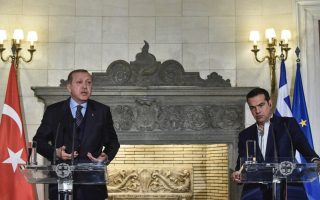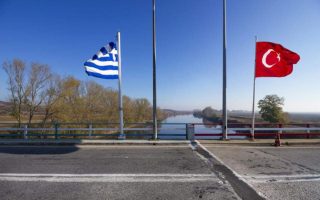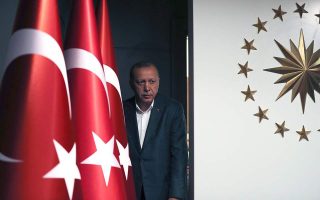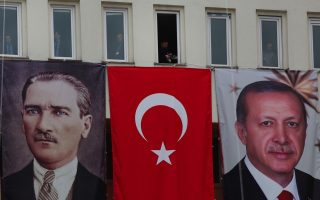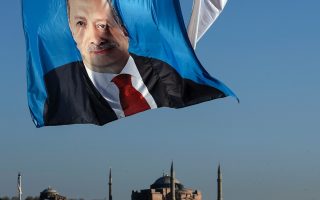Ankara’s expansionist agenda
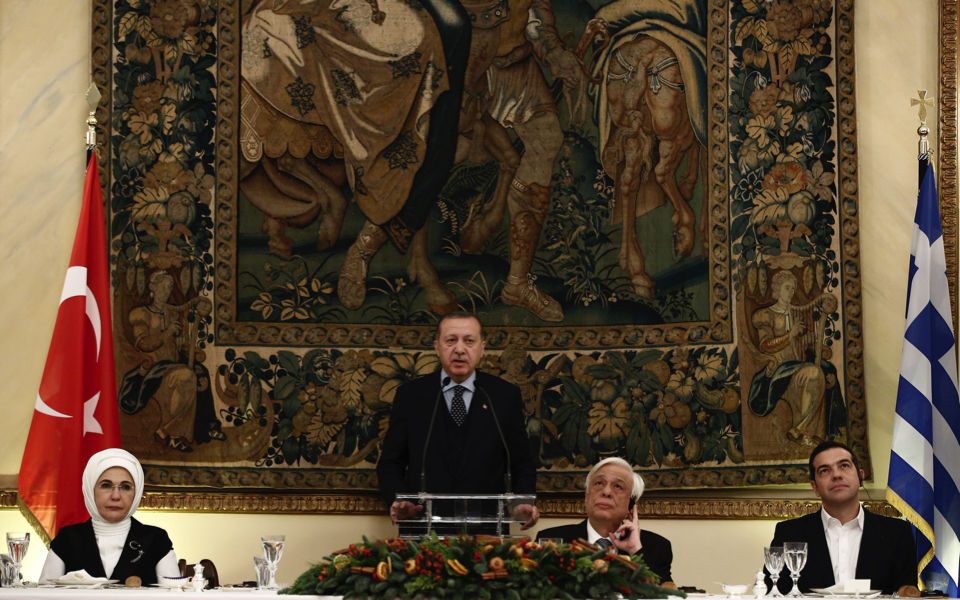
There is good and bad to be gleaned from Recep Tayyip Erdogan’s visit to Athens and all the things that he said in public.
The good news is that the Turkish president’s rhetoric has dashed all illusions anyone may have still harbored in regard to Ankara’s desire to settle some of the issues that have overshadowed relations between the two countries for decades and make significant concessions. It may also have reminded certain people that the 1999 Helsinki decision granting Turkey EU candidate status is dead.
Greece, therefore, needs to start developing its own national policy vis-a-vis Turkey, beyond European Union foreign policy. It needs to hammer out a line that is clear and comprehensive and, most importantly, which has the backing of the majority of the country’s political parties.
The other good thing about the visit was the visit itself: Open lines of communication are instrumental in creating the right conditions for a discussion; a lack of communication does not do anyone any good, especially at such a critical juncture.
The bad news, unfortunately, outweighs the good.
To start with, Erdogan appears to be adamant about adhering to his neo-Ottoman agenda coupled with a quasi-deterministic expansionist vision. In a televised interview on Skai, Erdogan referred to common characteristics that derive from geographical proximity (which must be said also have a cultural dimension), more or less sketching Greece out as an area that will inevitably fall under the influence of its far bigger neighbor.
More bad news was the full unfolding of Turkey’s agenda inside the Presidential Mansion by the Turkish president himself. Turkish revisionism regarding the Treaty of Lausanne and the status of islands in the Aegean Sea became evident in statements by Turkish Prime Minister Binali Yildirim in Athens last June. This time, however, Erdogan made sure there was no ambiguity about his remarks.
There is possibly some truth to claims that Erdogan is putting extra emphasis on foreign policy issues ahead of the 2019 elections at home. Maybe he is just saying openly what most people simply admit behind closed doors. Ankara feels confident about its regional aspirations and the Turkish president is the clearest and most emphatic transmitter of this message. The question is how will Athens react to all that?

